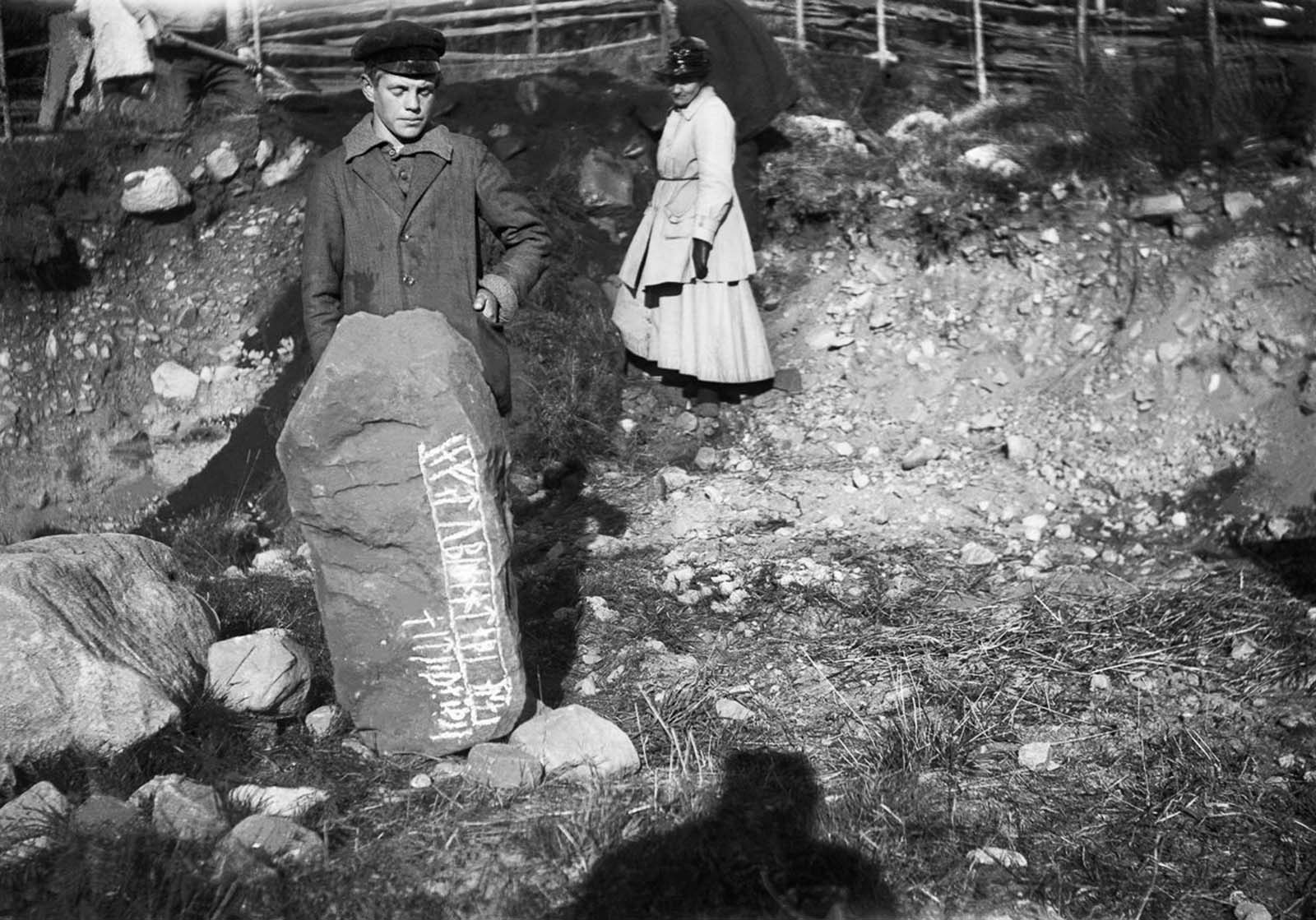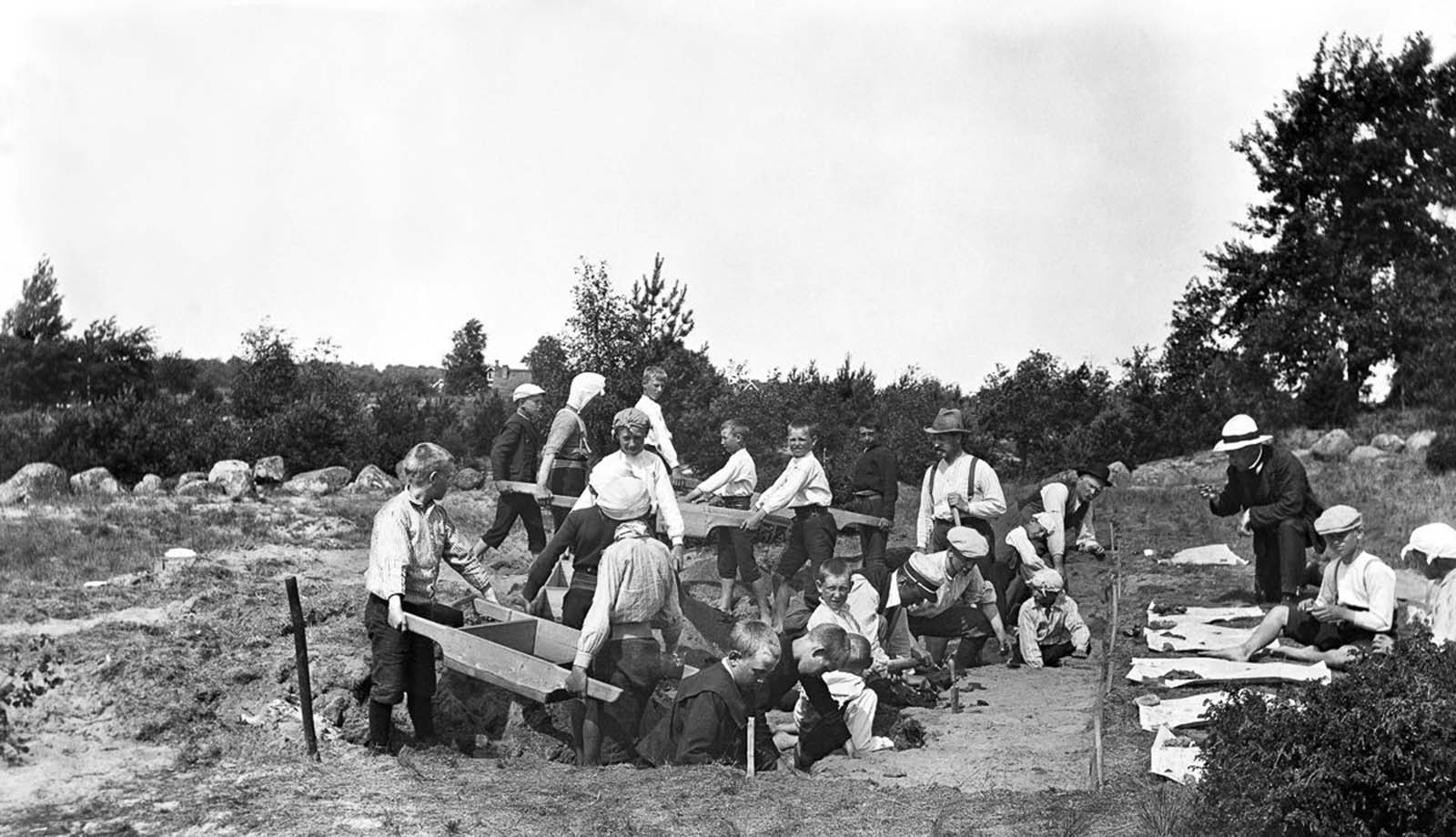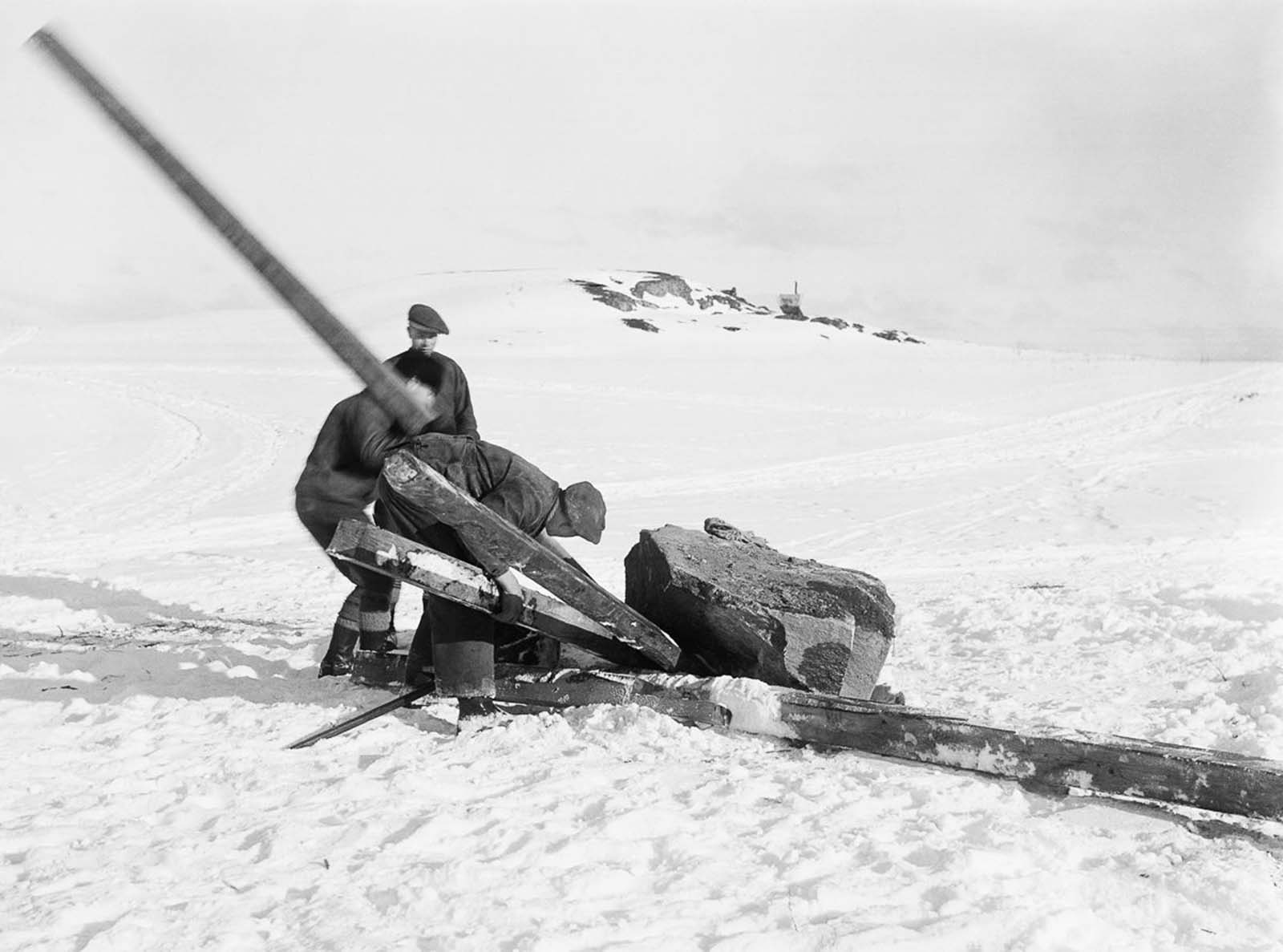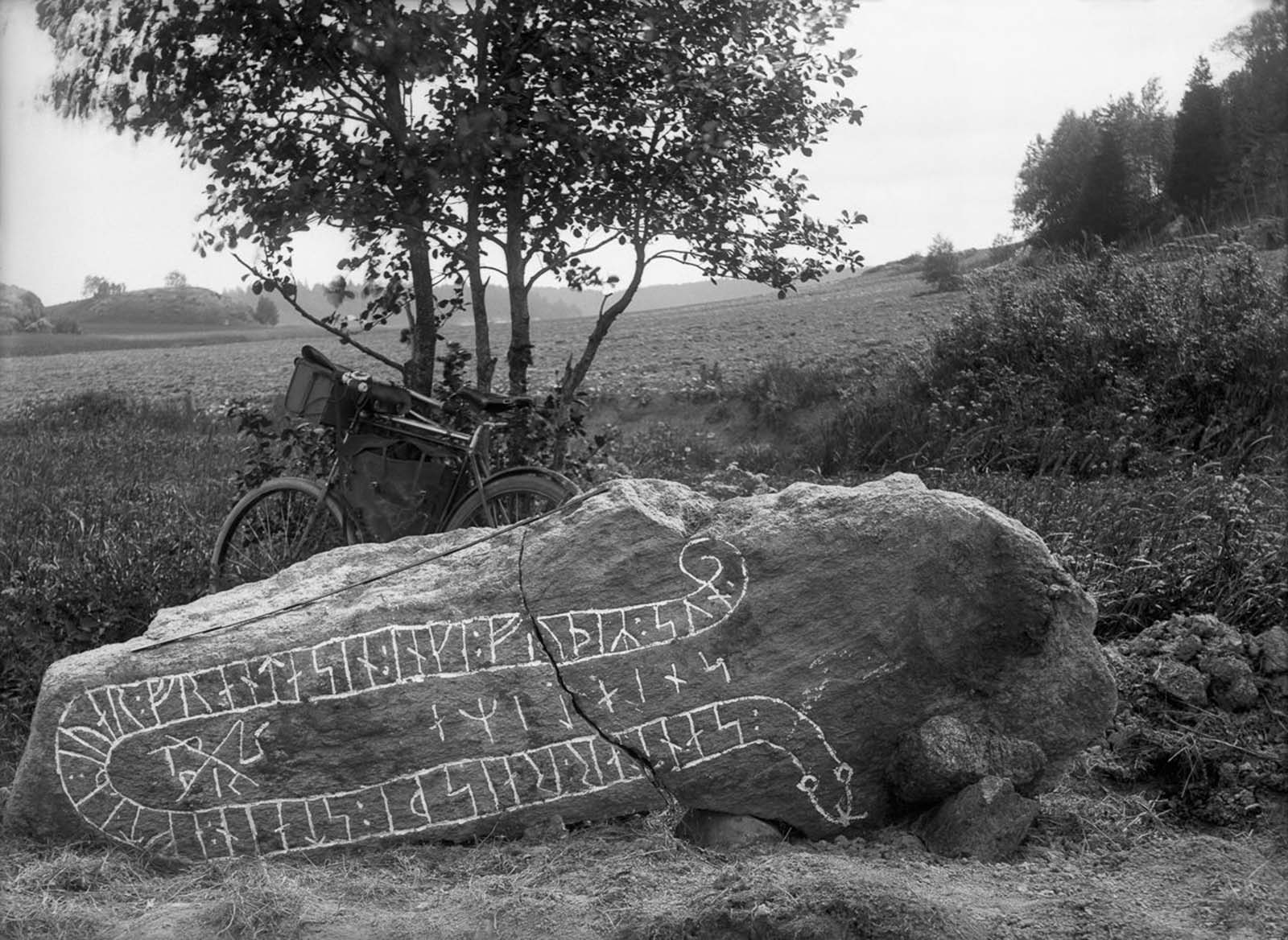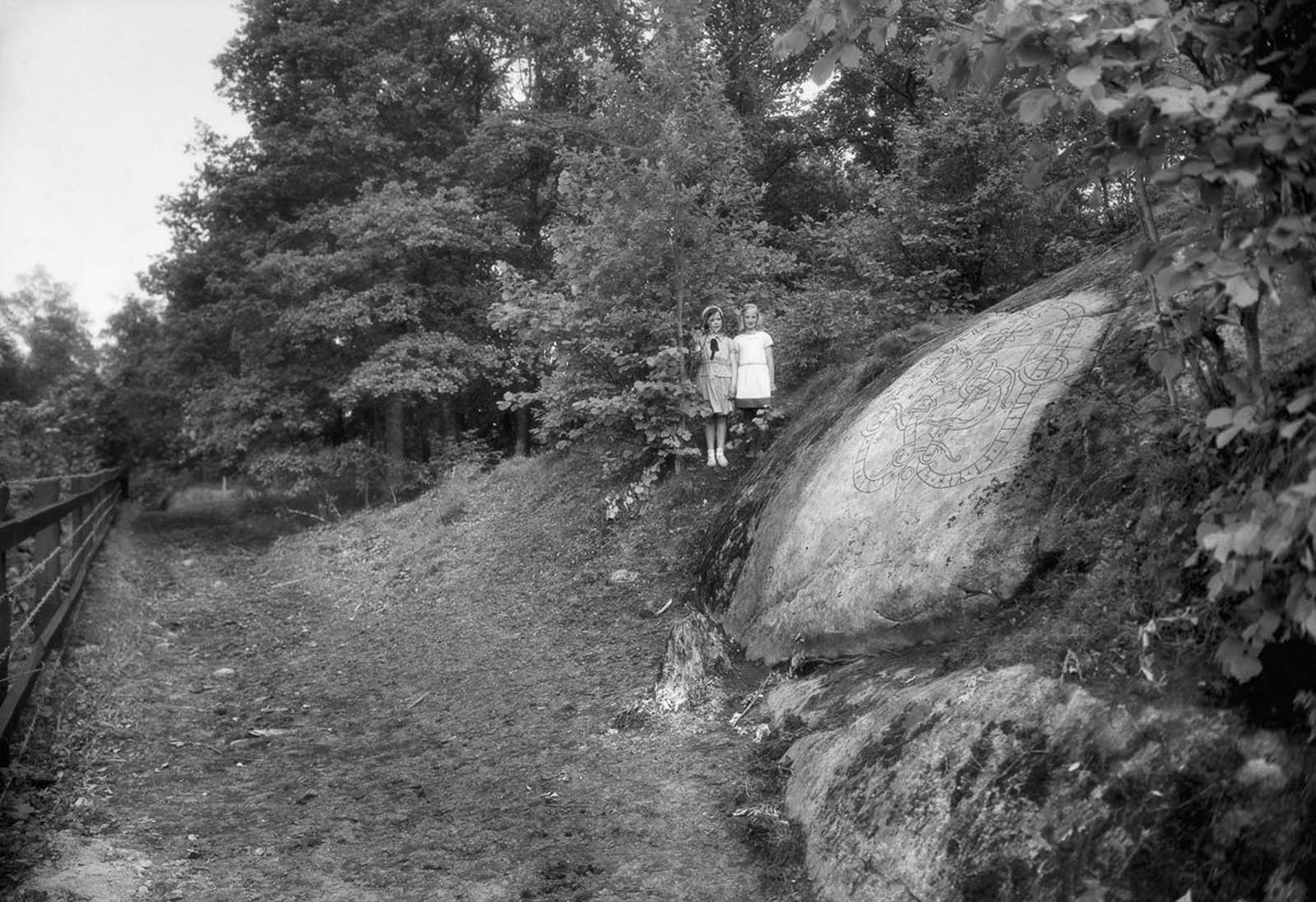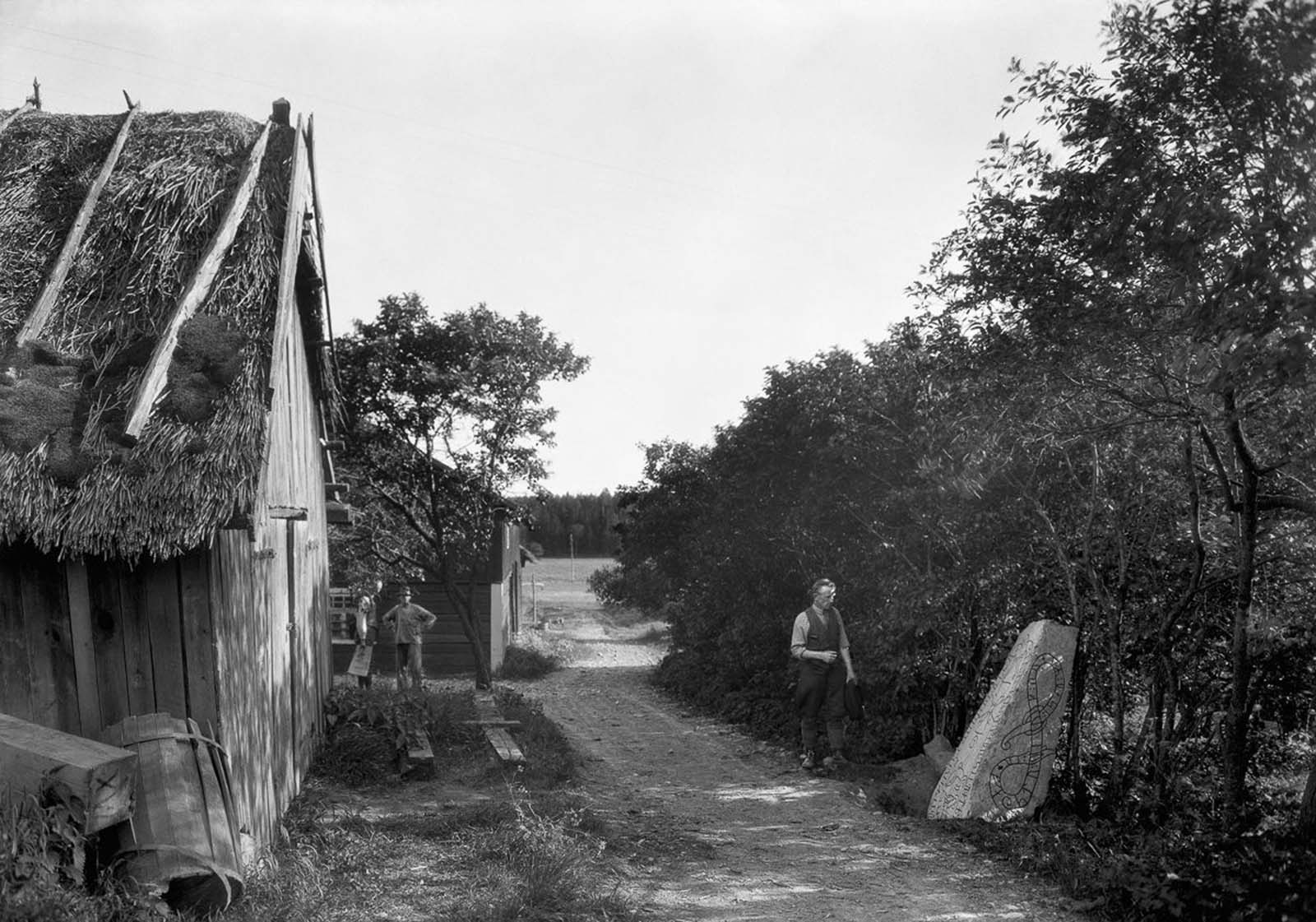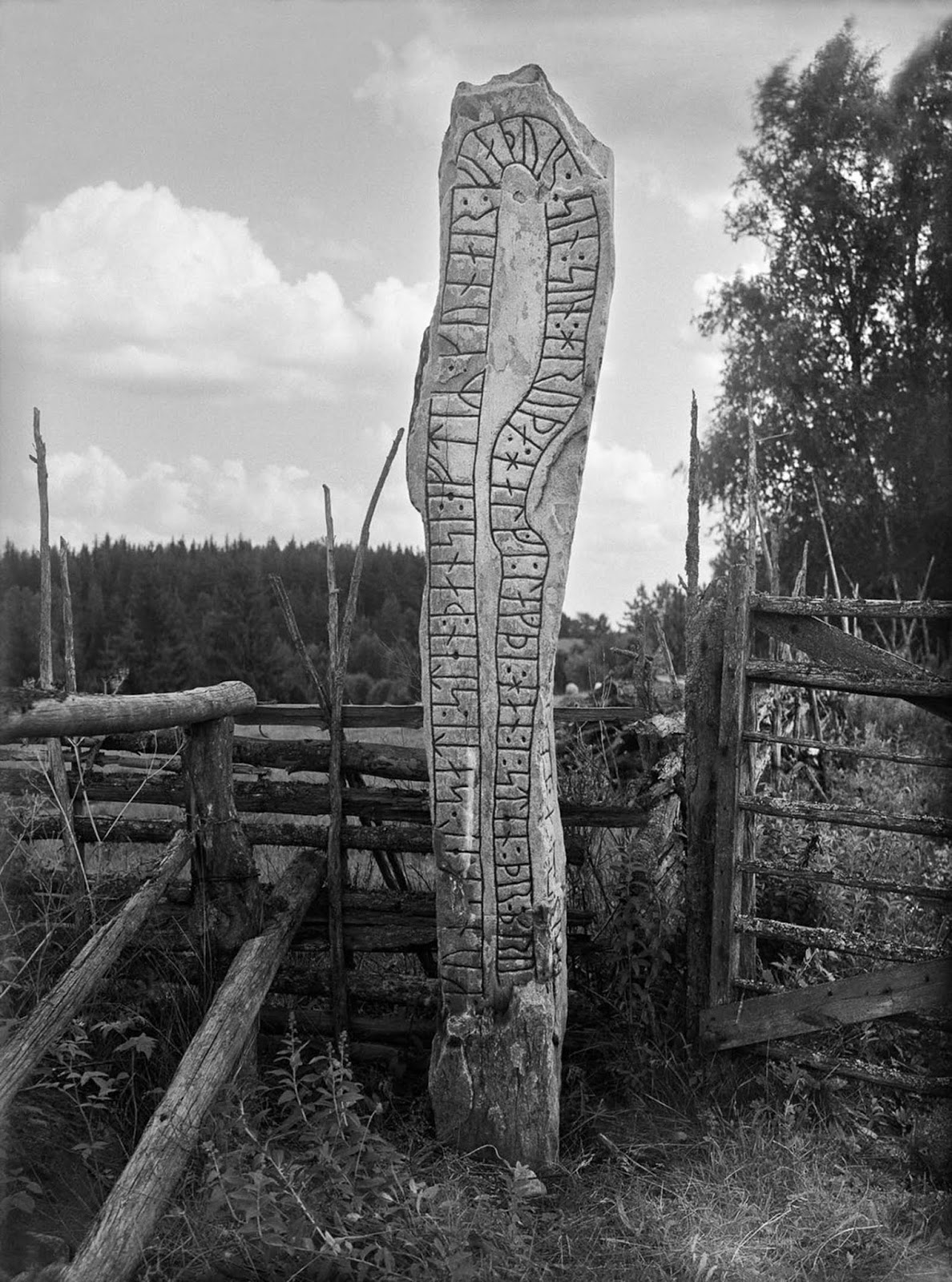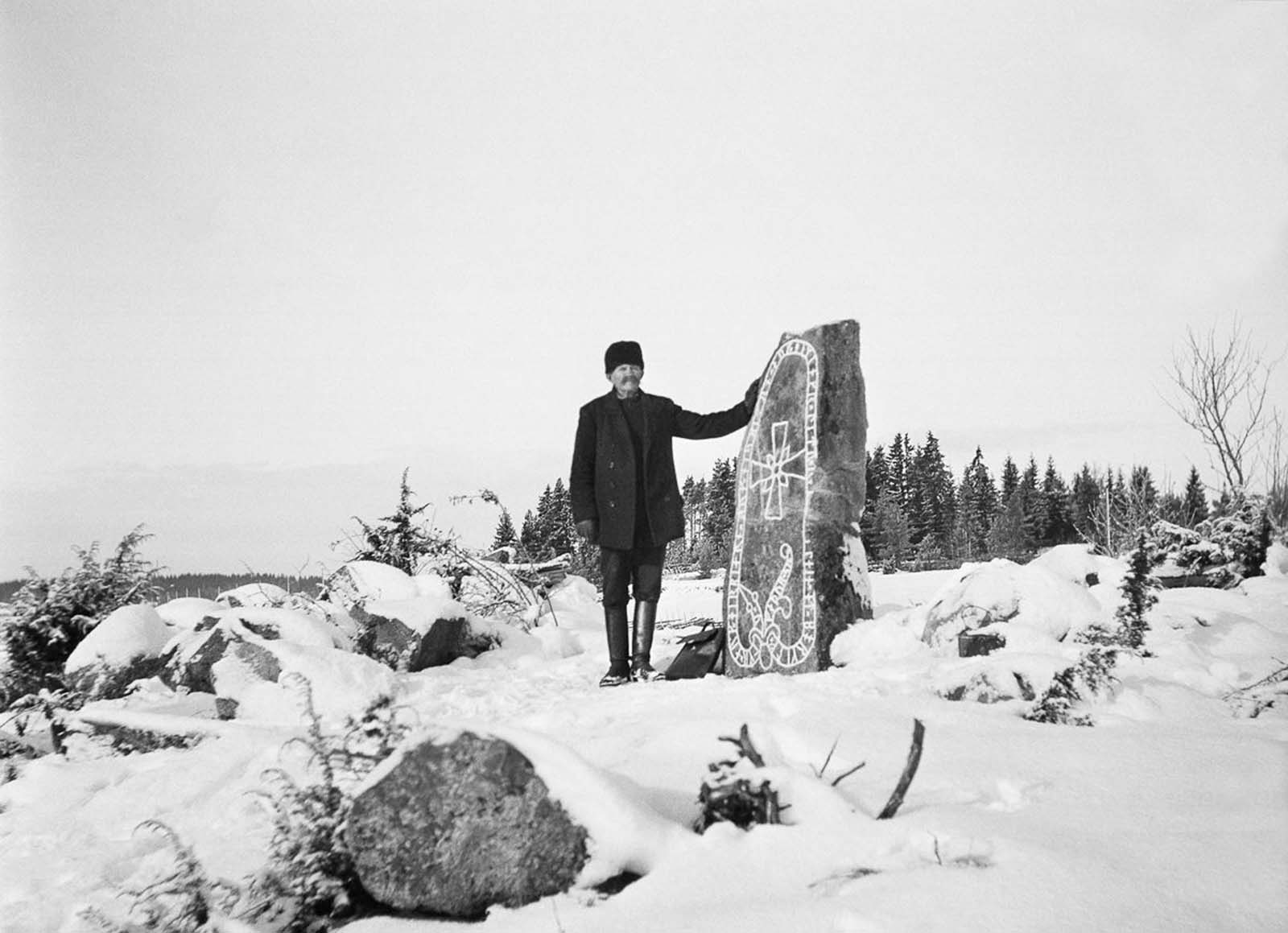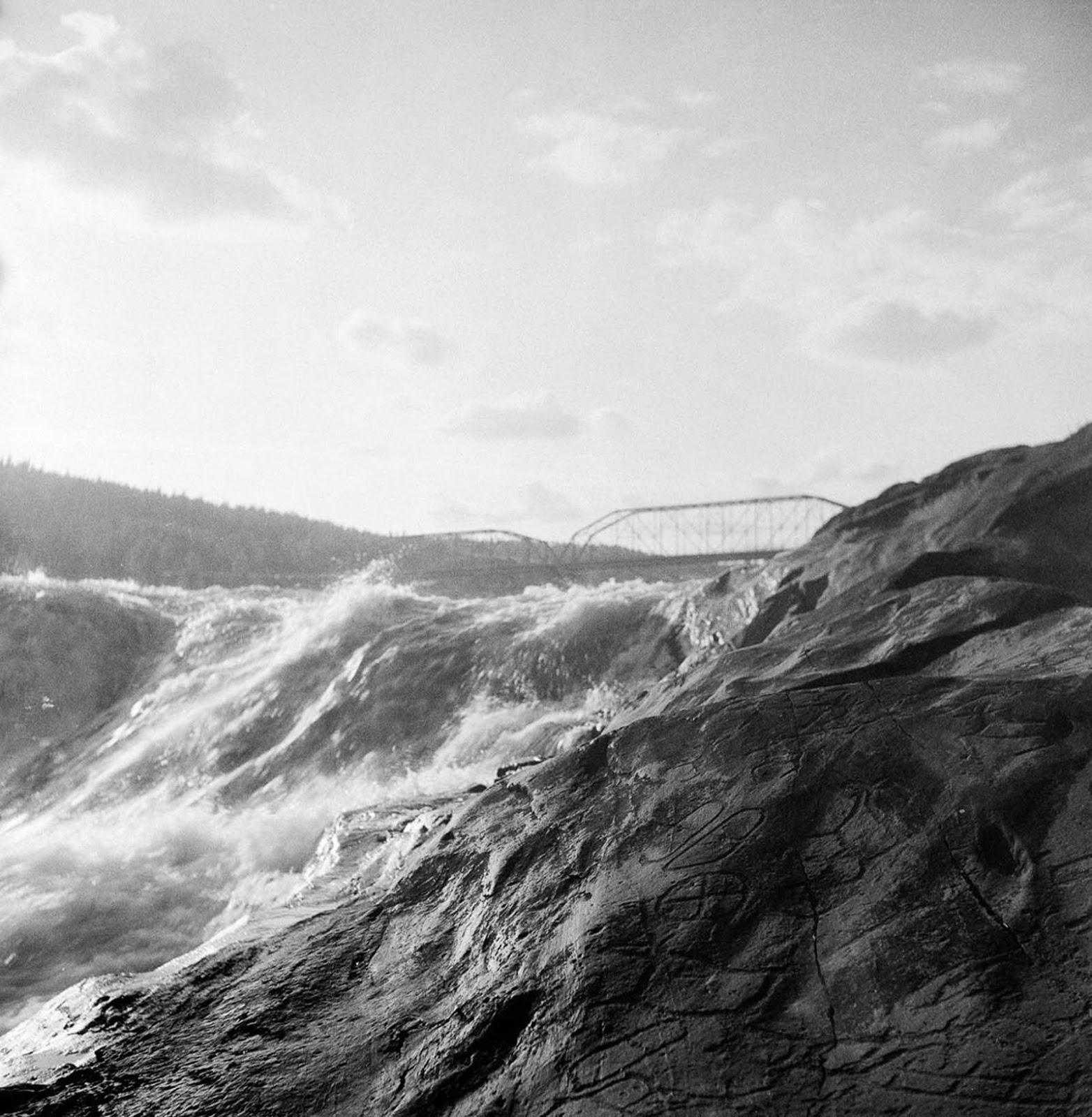Runestones were most commonly raised as memorials to deceased relatives and friends, but they were not burial markers. Instead, they were often placed close to roads or other communication routes. Runestones are the oldest existing original works of writing in Scandinavia. Originally they were written in a script consisting of 24 characters, known as the Elder Futhark (f-u-th-a-r-k being the sounds represented by the first six characters). Beginning in the early eighth century, this writing system was replaced by a revised alphabet, known as the Younger Futhark, with just 16 characters. The main purpose of a runestone was to mark territory, to explain inheritance, to boast about constructions, to bring glory to dead kinsmen, and to tell of important events. In some parts of Uppland, the runestones also appear to have functioned as social and economical markers. Virtually all the runestones from the late Viking Age make use of the same formula. The text tells in memory of whom the runestone is raised, who raised it, and often how the deceased and the one who raised the runestone are related to each other. Also, the inscription can tell the social status of the dead person, possible foreign voyage, place of death, and also a prayer. Other, older stone inscriptions feature more cryptic shapes, lines and pictograms. These photos from the Swedish National Heritage Board feature early 20th century Swedes excavating, restoring and posing with these monoliths of bygone cultures. Around 2,500 runestones still exist in Sweden today. (Photo credit: Swedish National Heritage Board). Notify me of new posts by email.
Δ Subscribe

